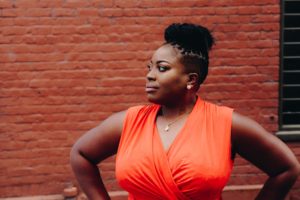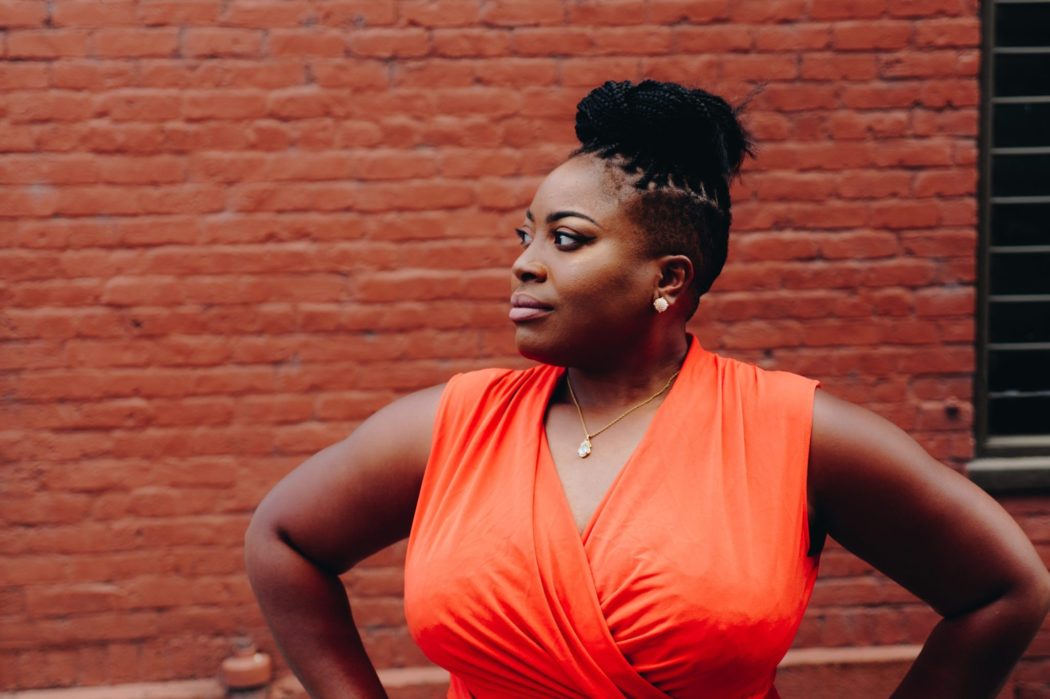 As a Black woman in society, I’ve learned that sometimes I’m treated as if I’m invisible. My personal space has been invaded as if I weren’t a presence, my voice has been muted in conversations as if my opinion didn’t matter, and I’ve been passed over for opportunities even though I was qualified and highly recommended. These instances have been painful, but when you are discriminated against from the medical community, it digs deeper. I always expected doctors to have a moral compass since their diagnosis and recommendations could be the difference in life or death, but that hasn’t been my truth. Doctors are humans who also fall victim to personal bias.
As a Black woman in society, I’ve learned that sometimes I’m treated as if I’m invisible. My personal space has been invaded as if I weren’t a presence, my voice has been muted in conversations as if my opinion didn’t matter, and I’ve been passed over for opportunities even though I was qualified and highly recommended. These instances have been painful, but when you are discriminated against from the medical community, it digs deeper. I always expected doctors to have a moral compass since their diagnosis and recommendations could be the difference in life or death, but that hasn’t been my truth. Doctors are humans who also fall victim to personal bias.
When I looked at my six-month old baby – her chubby cheeks, big afro, and toothless smile – it made my heart swell with happiness. Our parenting experience was perfect…until it wasn’t. While outside, the day was beautiful and sunny, my stomach churned with anxiety and uncertainty on the inside. My infant was quiet, too quiet – no coos, babbling, or mimicking our speech patterns – which was a red flag for me that something was wrong. Kennedy was my second child, so I patterned her behavior from my experience with her older sister.
Doctor visit number one was frustrating. I had notes and examples of Kennedy’s behavior and thought I was being a good observant mother by documenting her milestones…or lack thereof. The pediatrician said, “Kennedy’s fine. When a child has an older sibling, they sometimes are accelerated trying to keep up with them, or delayed because the sibling does everything for them. Don’t worry about Kennedy’s speech. She’s fine, give her time. I think you’re worrying too much.” This pacified me for a short while, but something in the pit of my stomach still felt wrong.
Two months later, I visited the doctor again. Kennedy was a living doll: She smiled, she cried, but she made no verbal sounds or attempts to speak. My mother worked with special needs adults and told me that early intervention was the way to get ahead of whatever Kennedy was experiencing. The problem was I had no idea what Kennedy’s issues were, and I lacked the support needed from her doctor to find out.
I sat in the doctor’s office nervously bouncing my knee while Kennedy was oblivious to my growing irritation at the physician in front of me. “Mrs. Rouse, I’ve been a doctor for longer than you’ve been alive,” the doctor said. “I’ve had thousands of patients to date, so I’m going to tell you again that Kennedy is fine. She’ll speak, you must be patient. Sometimes moms create issues that aren’t there.”
I sighed deeply and walked out feeling defeated. Was he saying that my husband had no issue with this because he was a man? At that point, I felt that I needed my husband to take time off work and attend the next visit with me.
After the church service that Sunday, I spoke to a woman who gloated about how Kennedy was a good baby and how quietly she sat Sunday after Sunday. I suddenly felt an urge to talk to her about my concerns. This ended up being one of the biggest blessings I’d experienced as the woman worked in my town’s human services department. I called her office on Monday and immediately worked to help my daughter.
Ultimately, here’s what I want people to know: Your gut instincts are normally accurate. Something inside of me knew from the moment my daughter was a couple months old that something didn’t feel right. It was hard to face because we all want perfect children; accepting she wasn’t meeting her milestones like infants her age was my first hurdle. Further, the doctor was wrong in labeling me a sensitive female.
Another thing that I realized is it’s okay to seek second and third opinions. My pediatrician was numb to my needs because of his long career of seeing patients. I realized that for him, Kennedy was one of many children who passed through his practice. What he didn’t realize, however, was that Kennedy was my only infant, and I was perceptive of her development. The doctor was wrong for thinking that his experiences with kids trumped my experience with my child because I wasn’t a medical professional.
I realized I had to be proactive and advocate for my daughter. The lack of concern from the doctor drove me to do outside research. I found several programs and resources that were supported by my insurance company. My days were filled with appointments and phone calls; over the next several weeks, Kennedy started extensive speech therapy. By eighteen months, the therapist entertained the idea of teaching her sign language.
During my daughter’s two-year check-up, her pediatrician walked over to me with a clipboard in hand. “Mrs. Rouse, I think something is going on with Kennedy, and I want to make you some recommendations because I’m concerned that she’s not meeting her milestones,” he stated. I looked at him with a blank expression because this is what I’d been saying to him since she was three months old.
At that moment, he confirmed my suspicions: He had dismissed and labeled me as a sensitive female who lacked the knowledge and education of a medical professional, so he didn’t take me seriously. I want people to know that this was my last visit with that pediatrician. I chose to find someone who represented my family better. I had options and chose to move on from his lackadaisical level of healthcare. My opinion and concerns matter, and my social class should not diminish that truth. The fact that I was proactive is the reason why Kennedy – after many years of extensive speech therapy – is a talkative seventeen-year-old today.
This article was originally published on April 18, 2023.
 Delia Rouse is an published author of three books and writes about women’s fiction. She also writes a bi-monthly blog and can be contacted via her website Deliarouse.com.
Delia Rouse is an published author of three books and writes about women’s fiction. She also writes a bi-monthly blog and can be contacted via her website Deliarouse.com.

There are no comments
Add yours